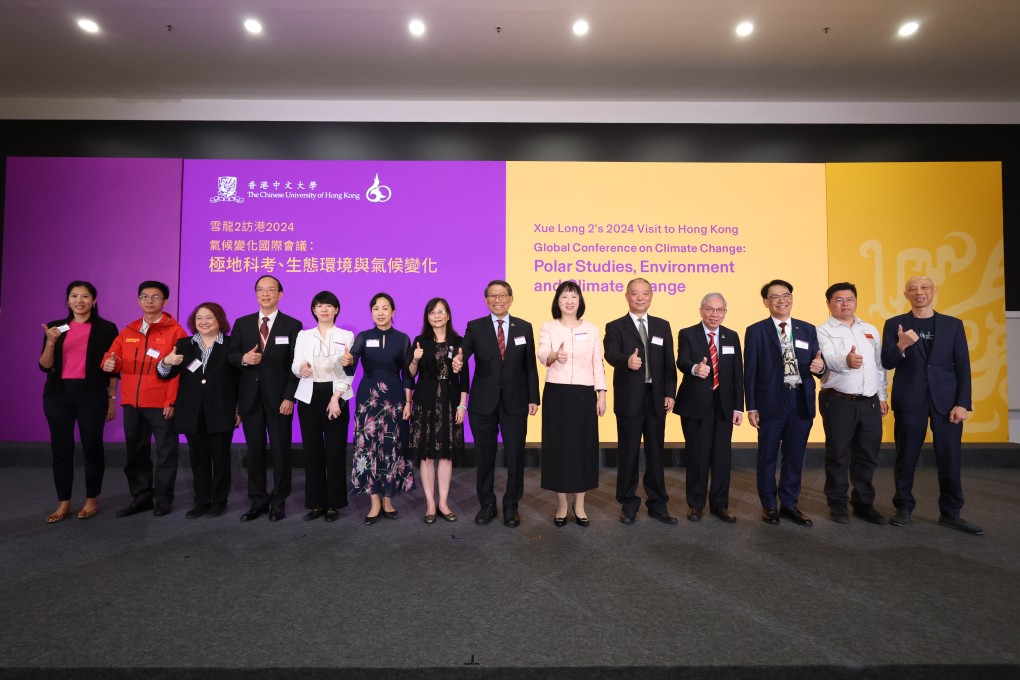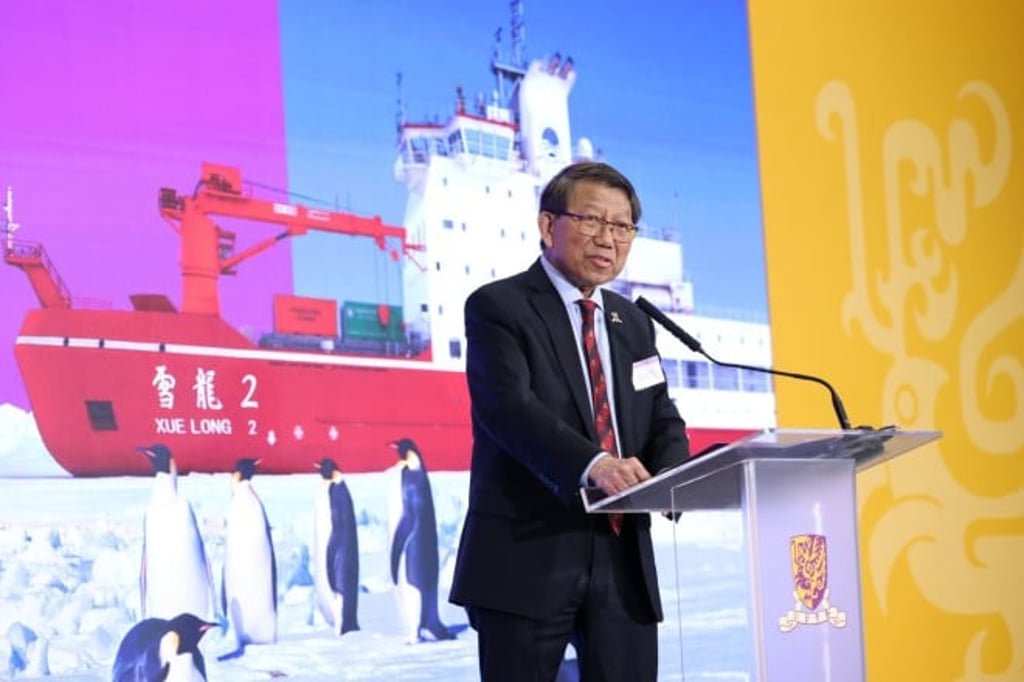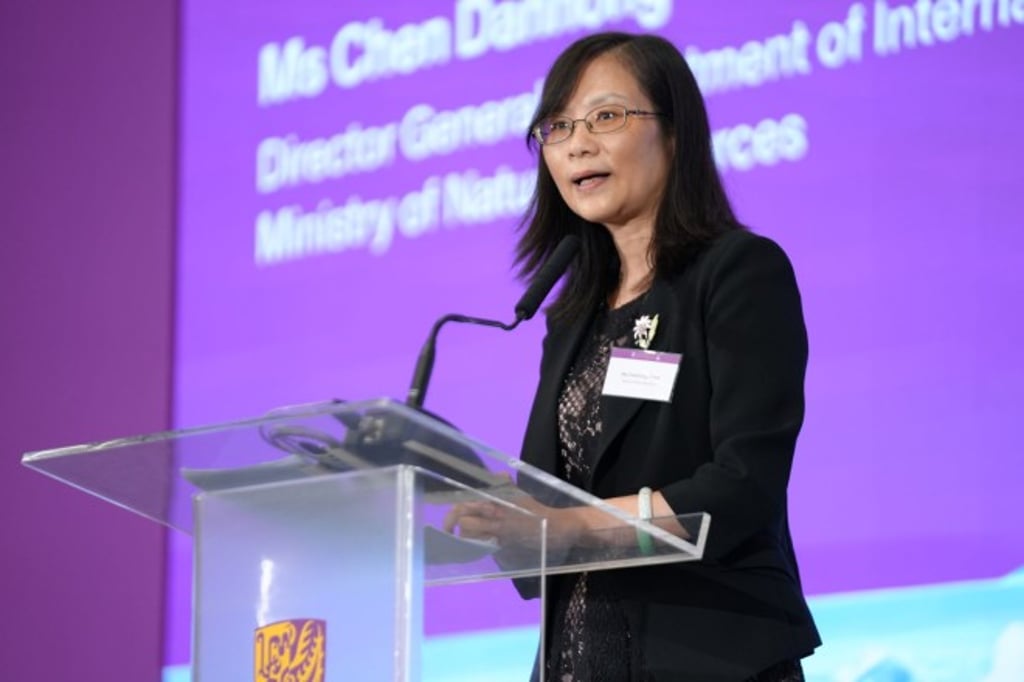The Chinese University of Hong Kong leads climate-centric academic activities to align with Xue Long 2’s first Hong Kong visit
- CUHK was the only academic partner invited to co-organise activities to mark the visit by the Chinese-made icebreaker after the successful completion of China’s 40th Antarctic scientific expedition.
- The University hosted the “Global Conference on Climate Change: Polar Studies, Environment and Climate Change”, a platform for exchange on polar studies and climate change among 2,000 attendees.

[The content of this article has been produced by our advertising partner.]
Antarctica, a crucial climate change indicator, plays a significant role in Earth’s climate and ocean systems. It influences sea level rise and the rate of regional and global climate change. Research on Antarctica offers vital insights into past and present climate patterns, aids in predicting future climate scenarios, and guides the development of policies and strategies to mitigate climate change impacts.
China has made substantial contributions to global climate change research on the Antarctic ecosystem. Its first domestically built polar research two-way icebreaker, Xue Long (snow dragon) 2, recently completed a six-month mission, during which a new scientific station was established along the Ross Sea’s coastal areas.
CUHK, one of Asia’s leading research-focused universities, has been at the forefront of studying the impacts of climate change and sustainability worldwide. It established the Jockey Club Museum of Climate Change in 2013, the world’s first museum dedicated to climate change. In recognition of its research contributions, CUHK was the exclusive academic co-host for a series of activities commemorating Xue Long 2’s visit.
To align with Xue Long 2’s five-day stay in Hong Kong, CUHK co-organised a conference at the Yasumoto International Academic Park in the CUHK campus. The event was held in collaboration with the United Nations Sustainable Development Solutions Network (Hong Kong Chapter), the Jockey Club Museum of Climate Change, and the Polar Research Institute of Hong Kong.
The conference served as a dynamic platform for collaboration, knowledge exchange, and solution-oriented discussions among over 2,000 participants from around the world. These included scientists, researchers, academics, policymakers, industry leaders, students, and community representatives. Guided by a multidisciplinary approach and a shared goal to inspire global solutions to climate change, attendees delved into the latest ideas and findings in polar studies and shared insights on climate change, the environment, and the connection between polar regions and the global community.
Staunch support
The opening ceremony was graced by several distinguished guests including Chen Danhong, Director-General of the Department of International Cooperation, Ministry of Natural Resources, People’s Republic of China; Michelle Li Mei-sheung, Permanent Secretary for Education, HKSAR Government; Wu Cheng, Deputy Director-General, Department of Educational, Scientific and Technological Affairs, Liaison Office of the Central People’s Government in the HKSAR; Ma Fung-kwok, Chairman, Organising Committee for the Xue Long 2’s visit to Hong Kong; and Professor Ho Kin-chung, Chairman, Executive Committee for the Xue Long 2’s visit to Hong Kong.

Echoing his sentiment, Chen highlighted China’s commitment to combat climate change through the promotion of green energy and the construction of an ecological civilisation.

Knowledge exchange
The international conference brought together leading scientists from diverse fields such as oceanography, marine biology, astronomy, glaciology, and engineering, all of whom have a long-standing involvement in polar research. They were joined by academics and experts from other disciplines, including architecture, design research, education, and resource management.
